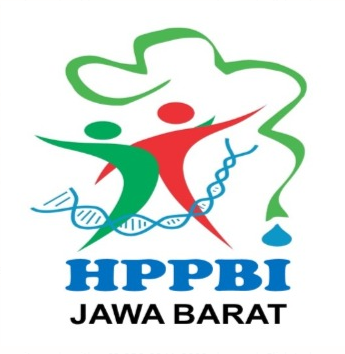Comparison Analysis of Temperature Treatment on Cutleaf Groundcherrys Leaf and Stem
Abstract
The mouth has a normal microflorane of bacteria as the body's defense. Streptococcus mutans bacteria are
bacteria that colonize the surface of teeth which have a role in the formation of dental caries. The leaves of
ciplukan (Physalis angulata L.) are rich in polyphenols, alkaloids, and flavonoids which are reported to have
quite good antimicrobial activity. The aim of this research was to determine the effect of ethanol extract of
ciplukan leaves and stalks mouthwash on Streptococcus mutans bacteria. This rese arch method is purely
laboratory experimental using Streptococcus mutans bacteria culture. The antibacterial power test used the
liquid dilution method which was then followed by solid dilution with an incubation period of 28 ° C. The
statistical analysis test used a descriptive test. The results showed that the ethanol extract of the leaves and
stems of ciplukan (Physalis angulata L.) had a minimum inhibitory level (MIC) and a minimum kill rate
(MBC) at the same concentration, namely 15%. The temperature of the human oral cavity in cold places tends
to change because the mouth is very close to the outside environment, so this mouthwash can be
recommended to minimize bacterial growth in cold areas..
References
Aneja, K. R., Joshi, R., & Sharman, C. The antimicrobial potential of ten often used mouthwashes against four dental caries patoghens. Jundishapur Journal of Microbiology. 2010; 3(1): 15-27.
AS, Noorhamdani., Rio, J. A., & Gracia, H. Uji Efektivitas Ekstrak Etanol Daun Ciplukan (Physalis angulata L.) terhadap Antimikroba Acinotebacter baumannii secara In Vitro. Majalah Gracia Harahap. Jurnal Penelitian Fakultas Kedokteran Universitas Brawijaya. 2014.
Biswas, S., & Biswas, I. Complete genome sequence of Streptococcus mutans GS-5, a Serotype c Strain. Journal of Bacteriology 2012; 194(17): 4787-4788.
Dewi, F. K. Aktivitas Antibakteri Ekstrak Etanol Buah Mengkudu (Morinda Citrifolia, Linnaeus) terhadap Bakteri Pembusuk Daging Segar. Skripsi. Surakarta: Universitas Sebelas Maret. 2010.
Fitrianti, D., AS, N., & Karyono, S, S. Efektivitas Ekstrak Daun Ceplukan sebagai Antimikroba terhadap Methicillin-Resistant. Jurnal Kedokteran Brawijaya. 2011; 26(4): 212-215.
Jawetz, Melnick, & Adelberg. Mikrobiologi kedokteran. 23th ed. Jakarta: EGC. 2008.
Kidd, E. A., & Bechal, S. J.DASAR-DASAR KARIES Penyakit dan Penanggulangannya. Edisi ke-2. Jakarta: EGC. 1992.
Nagappan, N., & John, J. Antimicrobial Efficacy of Herbal and Chlorhexidine Mouth rinse -. Journal of Dental and Medical Sciences. 2012; 2(4): 05-10.
Nanumala, S. K., R, K., Gunda, K., G, S., & P, S. Antiulcer activity of the ethanolic extract of leaves Physalis angulata L. International Journal of Pharmacy and Pharmaceutical Sciences. 2012; 4(4): 226-228.
Priyanto. Farmakologi Dasar. Edisi ke-2. Depok: LESKONFI; 2010.
Rifdayani, N., Budiarti, L. Y., & Carabelly, A. N. Perbandingan Efek Bakterisidal Ekstrak Mengkudu (Morinda Citrifolia) 100% dan Povidone Iodine 1% terhadap Streptococcus mutans In Vitro. Dentino Jurnal Kedokteran Gigi. 2014; 2(1): 1-6.
Sunatmo, TI. 2009. Mikrobiologi essensial 1. Jakarta:Ardy Agency.
DOI: 10.55215/jber.v2i1.3397
 Abstract views : 441
Abstract views : 441
Refbacks
- There are currently no refbacks.
Copyright (c) 2021 Lilis Supratman, Raden Teti Rostikawati

This work is licensed under a Creative Commons Attribution-NonCommercial 4.0 International License.









